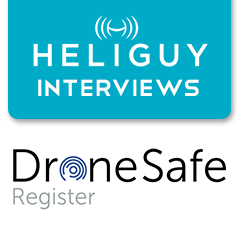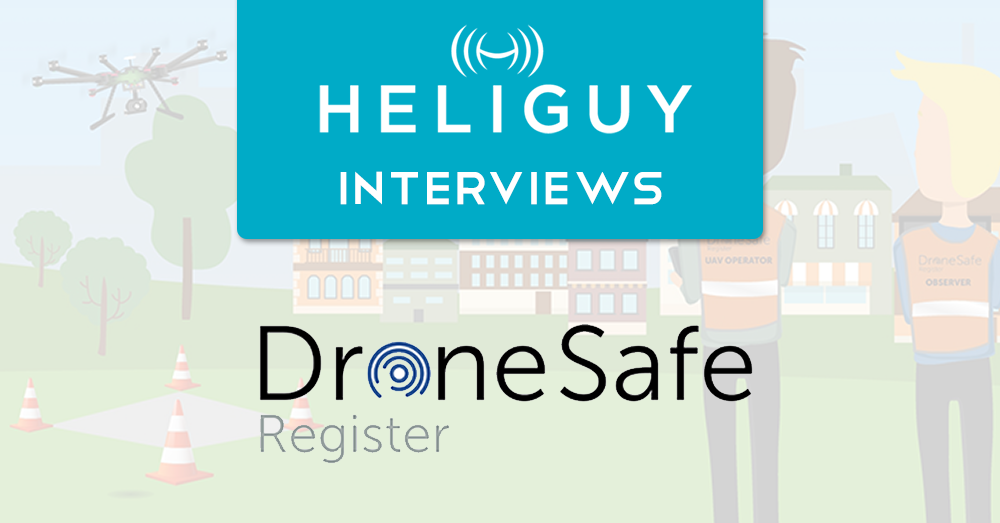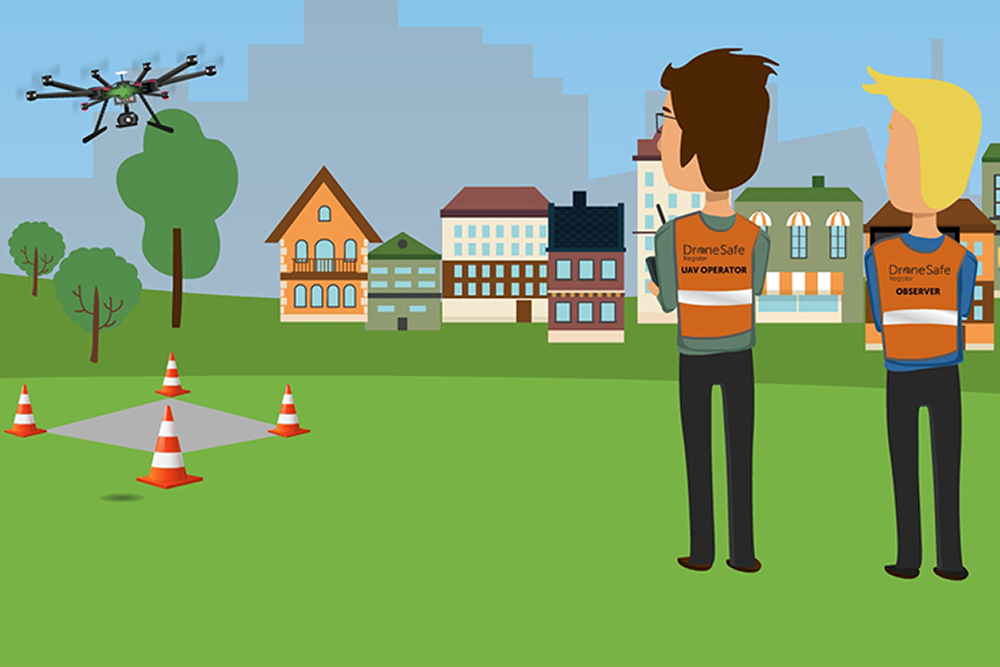
Updated on • 18 Aug 2024
Heliguy Interviews Drone Safe Register
Heliguy Interviews Drone Safe Register about the importance of regulation and the future of commercial drone usage in the UK and beyond. ... Read More

The Interview
Read on for our discussion with Drone Safe Register which includes opinions on the UK CAA's regulations, what they believe to be the most popular commercial usage of drones and where the industry is headed.
Could you give our readers some background into the work carried out by Drone Safe Register?
MB: Drone Safe Register (DSR) is the fastest growing drone hire directory in the UK. The register is a heavily marketed directory for qualified drone pilots seeking incremental work. We are also the first UK drone organisation to highlight the issue of illegal drone operators and also the first organisation to register not only our members but our member’s aircraft too. We actively market the UK’s aviation rules and regulations that members of the public need to know before hiring a drone pilot.
What made you decide to set up the Drone Safe Register database?
MB: Having invested time, money and effort into passing my CAA Permissions for Commercial Operation (PfCO) it was very clear that more illegal operators use their drones for paid work than legal pilots. No other organisation was highlighting this fact and no easy to use drone database existed. So, DSR was founded. Our mission is to promote our safe and legal members and put an end to illegal drone operators.
GET QUALIFIED WITH HELIGUY'S DRONE TRAINING COURSES
What are the biggest changes you have seen in the industry since starting out?

What, in your experience and through conversations with clients, is the sector using drones the most?
MB: We see and hear lots of DSR drone work enquiries being made every day. Drones are being used in all sectors of industry. Aerial inspection work and aerial filming for event coverage and production companies are very busy sectors currently.
How would you rate the current regulations the UK has in place compared to those abroad?
MB: The UK’s aviation rules are fair. It is the enforcing of the drone rules that is the issue. DSR would like the police to get tough on those breaking the law and flouting the drone rules. As an organisation, we only concentrate on the UK, it would be impossible to set a safe hiring platform for the world. All our members are checked for valid PfCO and insurance.
FIND OUT HOW HELIGUY HELPED CONVICT A DRONE SMUGGLER
How important do you consider the regulation of unmanned aircraft?
MB: Drones are classed as a light aircraft so it is vital that they are integrated into the UK’s airspace safely. In the wrong hands, drones can be very dangerous and can injure people or endanger other aircraft. Regulation is required to ensure everybody knows what the rules are and to avoid accidents. We are looking forward to the CAA launching a new 'Dronecode' later this year.
What do you think will be the main changes in the industry in the next few years?
MB: Drones are revolutionising the way we do business. Drone delivery tests are taking place so perhaps Amazon’s usage of drones to deliver goods is closer than we think. Drone technology and the applications in which UAVs can be used is changing all the time! Every day we hear of new ways that drones are being used to solve problems. Only today was a story about a new drone being developed to deliver a defibrillator to heart attack victims in an emergency situation.
READ OUR INSIDER LOOK AT THE FUTURE OF DRONE DELIVERY
What advice would you give to someone looking to start operating a drone professionally?
MB: Commercial drone operators by law need to obtain CAA permission and insurance before they set up business. So our advice would be to become proficient by practising on an inexpensive drone. Once you have homed your basic flying skills you can then convert to a better drone such as DJI. Once you are a competent drone pilot you can then undertake the CAA permission course with an approved training school known as a National Qualified Entity (NQEs). The course requires you to demonstrate the necessary skills and knowledge needed by a professional drone operator. Even with your CAA permissions in hand, it can be a tough market to crack especially if you don’t have any photography experience. Also, on average there are only around 100 perfect flying days in the UK per year so you must factor the weather in. And it’s not just about being a pilot. Flying of drones is probably just 10% of the job. You’ll need to spend time marketing, accounting, maintaining kit and writing risk assessments.
Our Take

...
Keep checking back to Heliguy's Insider blog for more information about legislation, aviation authority guidelines and, of course, the latest news from the drone industry.

written by
James Willoughby
James joined heliguy™ in 2018 following a 13-year stint in print and online journalism, having worked on regional and weekly newspaper titles. He is responsible for spearheading heliguy™'s content strategy and social media delivery. James collaborates with DJI Enterprise's European marketing team to coordinate and produce case studies and helps organise events and webinars.